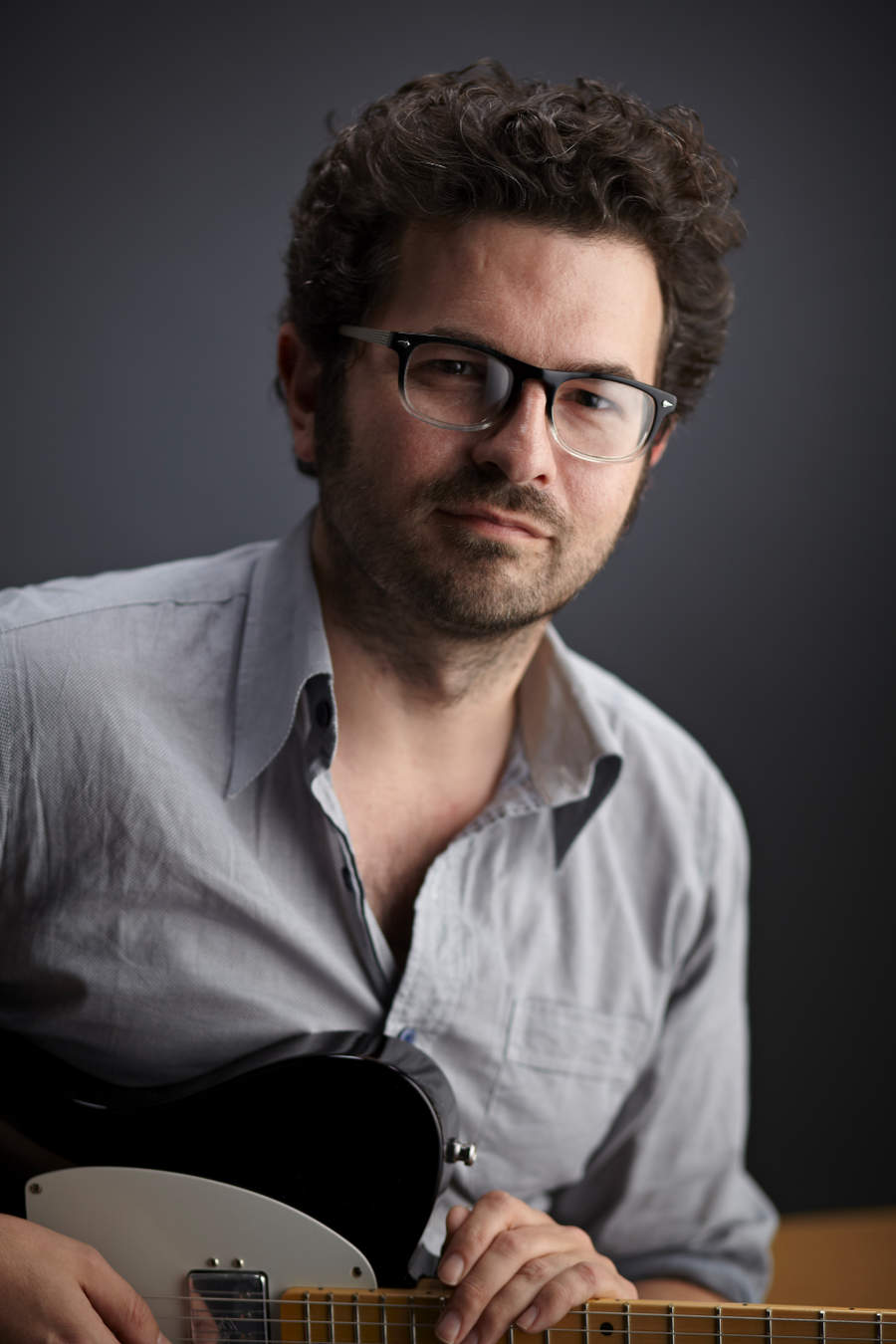Lenny Kravitz: “Are You Gonna Go My Way happened in five minutes”
Songwriting insights, jams with Slash and Prince, and tonal tidbits from the guitar star
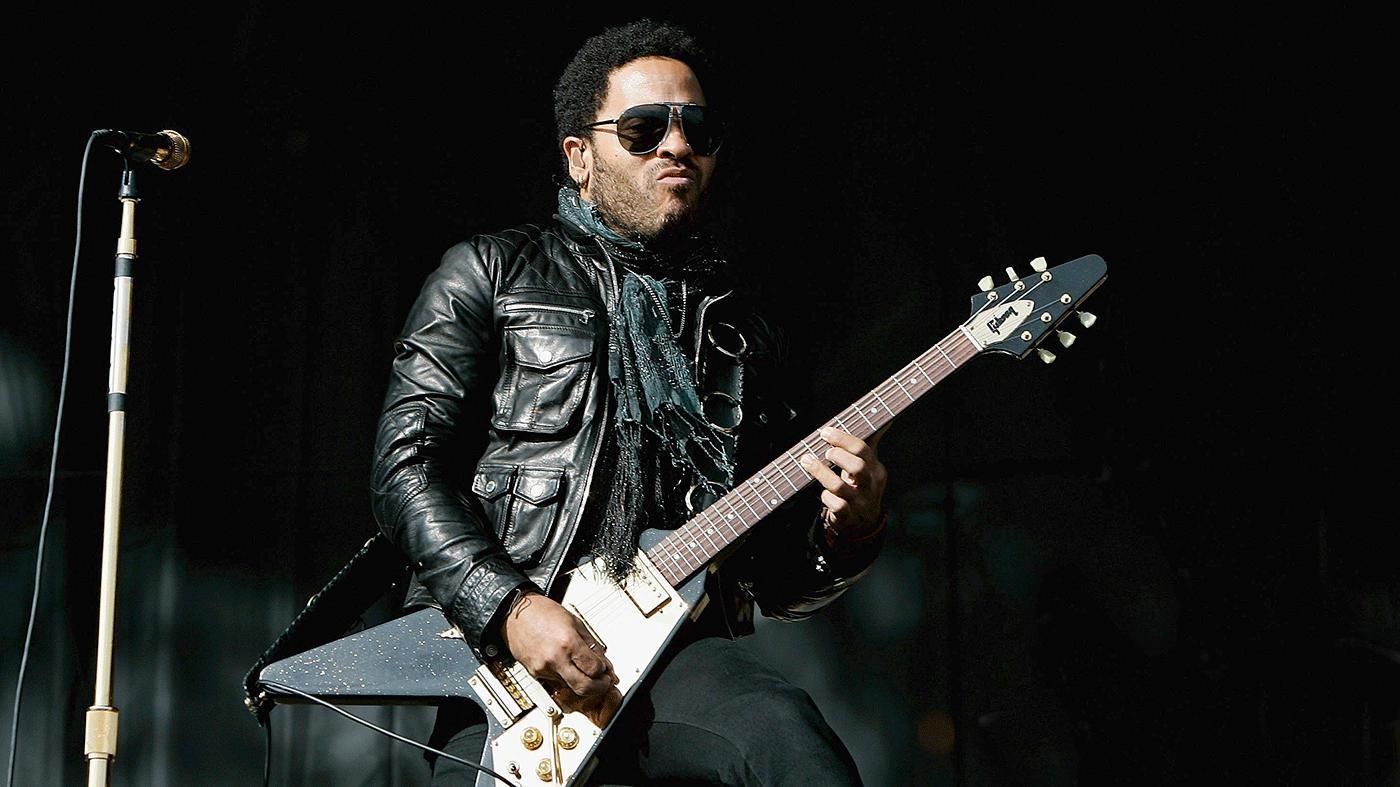
Now 30 years into a multi-million-album-selling career, serial Grammy winner Lenny Kravitz credits his success with hits such as Are You Gonna Go My Way and Always On The Run to instinctive, from-the-gut riffing and a ‘first take’ recording philosophy.
Here, he looks back on his lifelong love of guitar, the virtues of vintage Gibsons, being schoolmates with Slash and how his greatest riff was recorded with another band hammering on the studio door…
Early inheritance
“I was five years old and my dad had this acoustic guitar in the house. I remember it distinctly. It was a nylon-string guitar that I think he’d gotten at Manny’s. It was in a soft canvas case, and it used to live in the closet. Apparently, my mother had gotten it for him, hoping he would learn how to play, I suppose, and serenade her.
“So I began to pick it up and just started banging on it. In our tiny apartment in New York City, there was that guitar and there was a little upright piano. It was really small. Pots and pans, that was how I started [laughs]. Banging on pots and pans, the guitar and the piano.”
Inner city influence
Curtis Mayfield - his music sounded like the streets to me
“Curtis Mayfield’s Super Fly album was influential for me. I loved his music. I loved his songwriting, I loved his voice. Even as a kid, I understood that his voice really represented the inner city. It represented the street. His music sounded like the streets to me. I saw Super Fly when I was a kid and I loved all that music - Freddie’s Dead and Super Fly and all those songs. Yes, so Curtis Mayfield, definitely. A major educator.”
Team Slash
“Slash and I went to high school together, but we hadn’t seen each other since. When my first album was out, I went to the American Music Awards and Guns N’ Roses were getting awards [for Appetite For Destruction and Favorite Heavy Metal Artist, 1990] and they were sitting in front of me. He and I just kept looking at each other like, ‘I know you… Not ‘I know that you’re Lenny Kravitz and you’re Slash’ - but, like, I know you.’
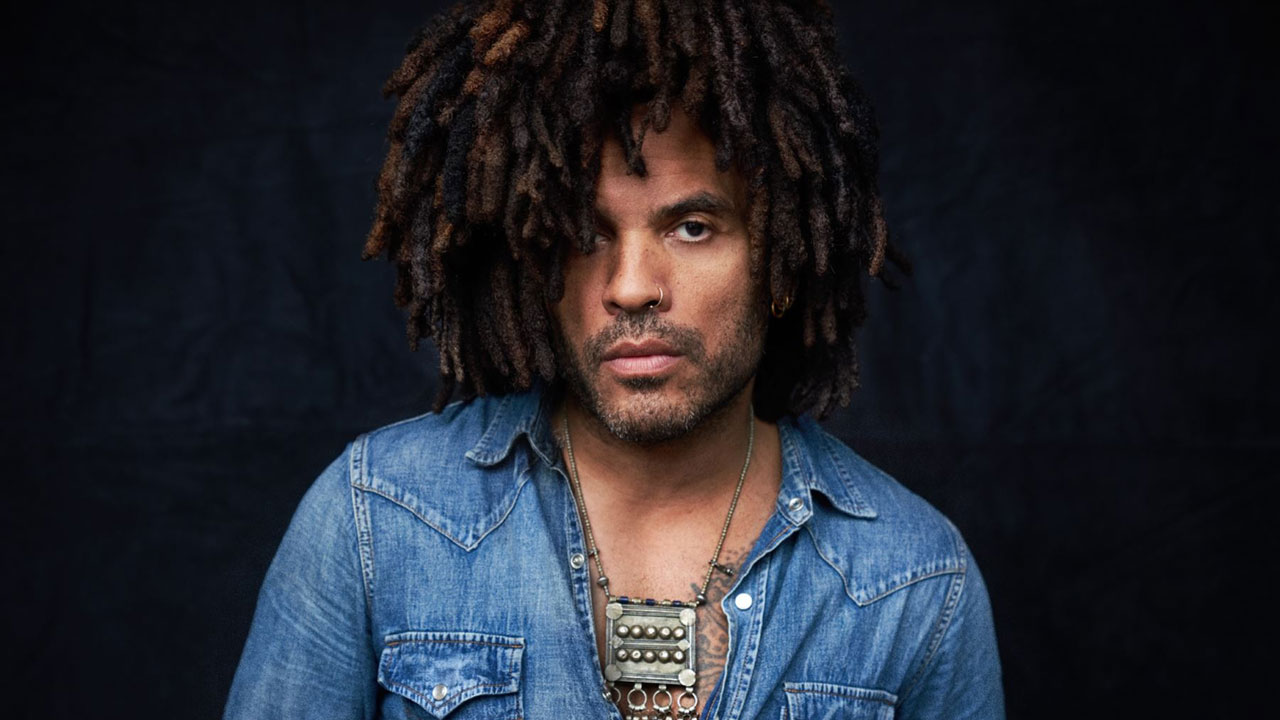
To celebrate the 30th anniversary of Let Love Rule, Lenny Kravitz has announced an exclusive UK date at The O2, London on Tuesday 11 June 2019. Support comes from Corinne Bailey Rae and protest rock collective Brass Against. Tickets are available from AEG.
“Then we realised we knew each other from school. So we started talking and were excited to meet each other again, especially the fact we were both making music. I was doing some overdub sessions for Mama Said, so he came in and played the solo on Fields Of Joy. It was a one-take solo and he wanted to play it over again, but I wouldn’t let him. I always love first takes.
Get the MusicRadar Newsletter
Want all the hottest music and gear news, reviews, deals, features and more, direct to your inbox? Sign up here.
“Anyway, we discussed doing something else together, like, ‘Okay, that was fun, but now let’s write a song together.’ Guns were finishing a tour in Europe and Slash called me and said, ‘I’m going to jump on Concorde. I’ll be in New York at 8:30 in the morning - let’s go in the studio and do something.’ So he showed up at my house at 9am or whatever, after landing, and we then went over to my studio on the subway, on the train, the packed train that goes to New Jersey.
“We started to jam and that riff to Always On The Run ended up coming out. I actually think he had been honing it before he got there. The song just wrote itself. To cut the track, he played the riff, I was on the drums. So it was just guitar and drums - that was it - and we got through the take and then I played my guitar part, which is the counter-rhythm part. Then I played the bass. He played his solo and then I wrote the horn arrangement, had the horn players come in and that was that. Did the vocals. It was a great session. Really fluid, it was very quick and spontaneous. That’s how that went down.”
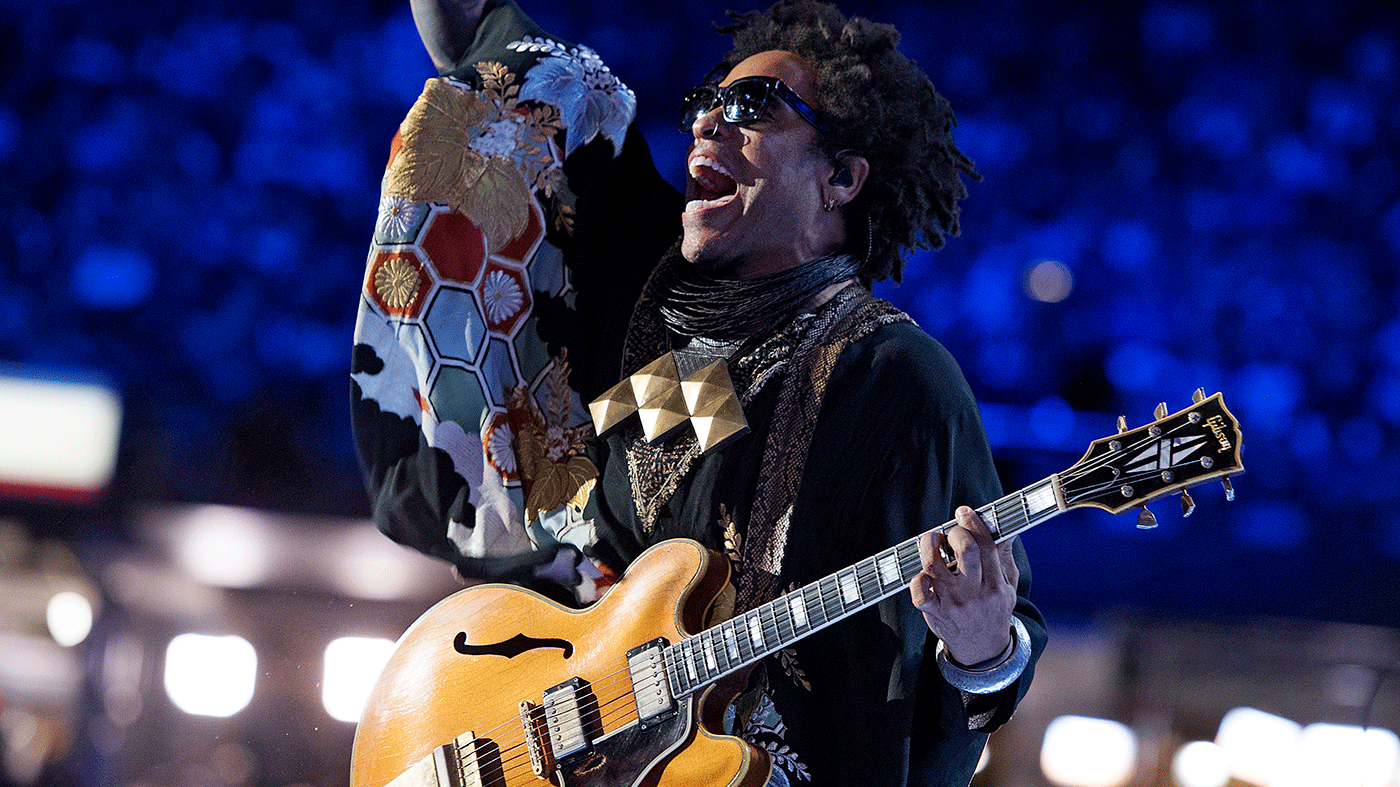
Playing with instinct
Nine times out of 10 we always go back to the first take. There’s just something about that first take
“What I like about first takes is the person is not thinking too much yet. It’s really instinctual. People say, ‘Oh, okay, well I could have done this or I could have done that.’ And I go through the same thing, but I find that when I allow the players - whether it’s myself or Craig [Ross, Kravitz’s long-standing guitarist] or a horn player - playing a solo to do it again, nine times out of 10 we always go back to the first take.
“There’s just something about that first take. Something immediate. After that, like I said, they start thinking too much. Guitarists laugh at me because they know, ‘Okay, you’re going to keep that first take, aren’t you?’ They really want to do it again and again and again and again to ‘perfect’ this thing. But I prefer the feel and the spontaneity of the first take.
“Those rough edges are so much of the character when you just make it to that note. There’s something about it. I mean, when I do my vocals on the record, they’re the first time I’ve sung that song. I write the song, but I don’t go and practise it. The vocals I lay down are the first time I sing it. And I might make some so-called mistakes, but they often end up being the best parts of it. So, yes, that’s how I like to work.”
Five-minute magic
“Are You Gonna Go My Way happened in five minutes. The recording happened in five minutes because there was another group getting ready to come into the next session - because even after making my third album, I still couldn’t lock out the studio all the time. So there’s the sessions, you know?
“So the next group were already waiting in the hallway and getting a little pissed off because we were probably running over, like, 15 minutes and so we had to record that really quickly and run out and I had no idea what I had. No idea. Took the cassette home, put it in and wrote the lyrics and the melody and then came back the next day and sang the song. Then, although I dug it, I still really had no idea what I had. I had no idea that it was going to be ‘that’ song, you know?”
Gold standard guitars
“I have a '50s Les Paul. Goldtop. It’s really worn out, it doesn’t even look gold any more. It’s a really beautiful guitar, but it’s one of my main guitars that I play a lot in the studio. It has the most pure-sounding pickups I’ve ever heard. Both pickups are brilliant and it’s also a beautiful guitar to look at, because it’s been destroyed by time and weather and smoke.
“But it really comes down to the sound, so that’s the number-one guitar I go to. I also have a plain Sunburst with a thin neck and also a three-pickup Les Paul Custom in black. It’s beautiful with a very, very streamlined sound.
I have a collection of custom-coloured Strats that have been sitting in storage for years and I finally took them out
“On my latest album [Raise Vibration, 2018], though, I went back to playing some more Strats - which I haven’t done in years. I was mostly playing Gibson in the studio, and I have a collection of custom-coloured Strats that have been sitting in storage for years and I finally took them out and got them set up. I have a Burgundy Mist Metallic and a Sonic Blue and a Shoreline Gold, so there are three or four of those. There’s also a black one with a matching headstock, which I believe is a ’69, with the big headstock. For the acoustics, I have a couple of Martins and a couple of Everly Brothers Gibsons that record really well. Those are the main guitars.”
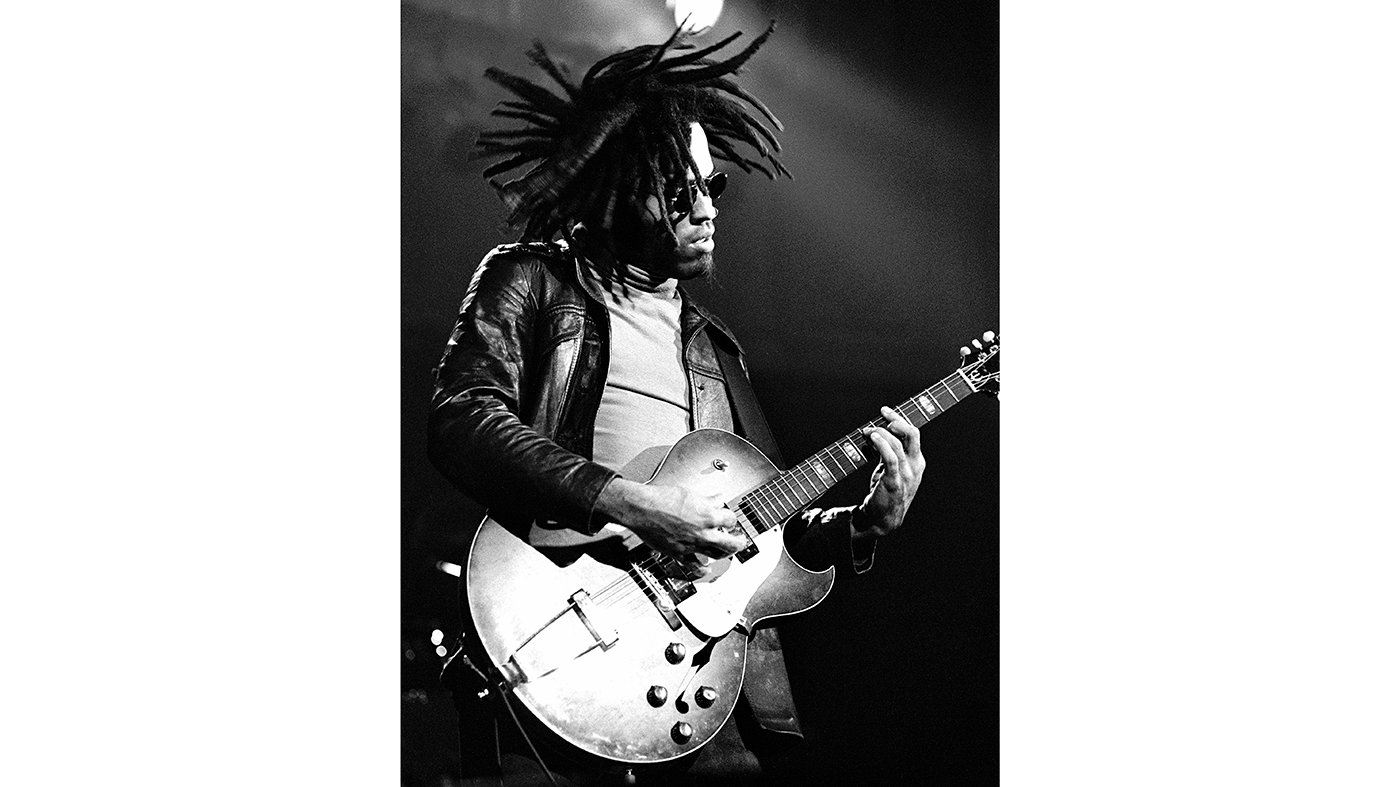
Dumble & Black Magick
“Most of the amps were Fender - Fender Blackface Deluxes that have been modified by [Alexander] Dumble. I have some great Dumble amps that he made for me, custom‑made. Just the most stunning amplifiers I have ever heard. They never leave the studio. I have a couple that go out with me live, but those are the ones I use in the studio. I’ve also got a couple of really good Marshall 100-watt and 50-watt Plexis and some Fender Deluxes.
“Then Supro sent me the Black Magick amp and that was originally just meant to be used live, but I thought, ‘Let me bring this into the studio and see what they sound like.’ I did and I was so surprised at how beautiful they sounded. They didn’t have that ‘new’ tight sound.
“When I say ‘tight’, I don’t mean that in a good way, like tight like a guitar. What I mean is when something just doesn’t have that warm, deep sound that I’m looking for. But this did. So, yes, I used the Black Magick Reverb on three or four tracks on the album, which was really surprising.
“It’s great to get that from a brand-new amp, especially one that I was involved with. Really, I just asked them to put reverb on it. That was pretty much my contribution because the amp already sounded really good, but I was like, ‘I need some reverb, dude.’ I don’t want to have to depend on a plate or whatever reverb unit. I want to hear that guitar spring reverb. What I was loving with Fender amps, you know? That worked out really well.”
The Boss of tone
Whenever I would go play with Prince, he loved his Boss pedals
“For the new album, I went back to my high-school phase and I pulled out some Boss pedals that I hadn’t used in years. I really thought of it because whenever I would go play with Prince, he loved his Boss pedals. It’s so funny because when I used to jam with him, he would say to me, ‘What’s that effect you have on your amp?’ I’d say, ‘It’s just straight. There’s nothing - it’s guitar and amp.’
“To him, hearing it, he thought it was an effect. I plugged straight into a Deluxe, like a Tweed Deluxe, turned everything up on 10 and got that really crunchy, saturated compressed sound. So he would ask me what effect it was and I thought it was funny because there was no effect. He had a double rack of Boss pedals, so I decided on this album to honour him. I pulled out the same pedals that he had and I used them. I used the octave pedal, I used the distortion pedal, I used the phase… I’m trying to think what else - but I used a bunch of them. That was refreshing for me.”
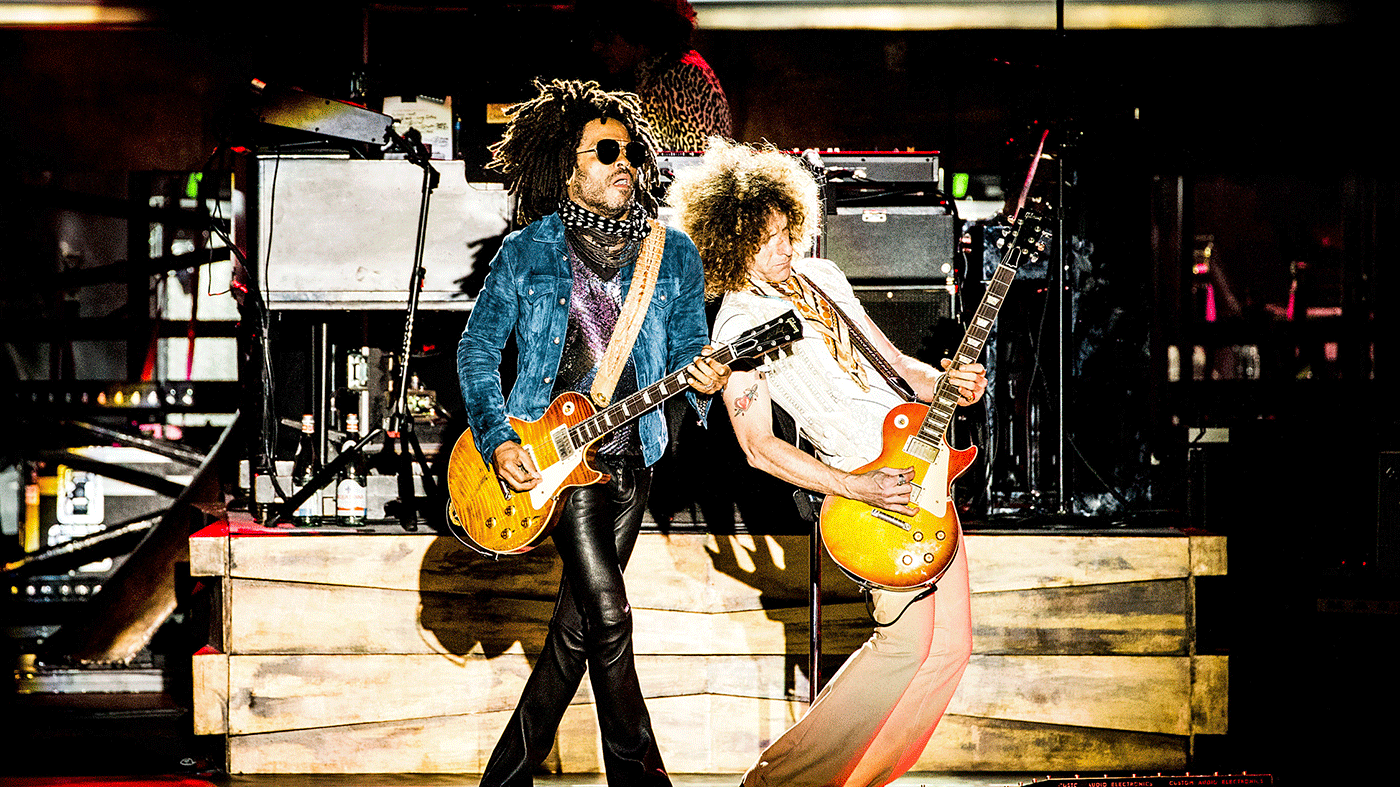
On songwriting
“For the most part, I write songs in my head and then I figure out [how to play them]. Like last night, actually, I woke up with a song in my head. I had to get up and I keep an acoustic next to the bed now and my phone so I can record it. So if it’s written on a guitar, it’s mostly acoustic guitar.
“Then there’s the riff-oriented songs that happen in the studio by just me jamming with an amp. With some of my biggest songs - like Fly Away, for instance - I wasn’t even trying to write a song. I had a guitar, this Les Paul that I was playing at the time, and I wanted to hear it through this amplifier because my engineer had brought in a Park head and I wanted to hear what it sounded like.
“So I plugged it in and you know how a certain guitar and a certain amp has a certain sound? You notice that while you’re experimenting with it, the juicy part of the neck is… you know, like, the chords that really ring out and have this full tone. The Fly Away chord riff came because that’s where the amp and the guitar sounded the best. I just started playing the combination of chords that sounded good and then next thing, it became a tune.
“Then there’s jamming, obviously. There are songs I’ve written where I’ve jammed with Craig where I get on the drums and he plays the guitar. So [songwriting] happens in all kinds of ways.
“I don’t quite know how I do what I do. It just happens. I just think you really have to trust your gut, your spirit. You have to trust that and you’ve got to be yourself and not try to be anybody else. That’s the thing that works with me, really. We all want to be like our heroes - and I don’t care if you’re the Stones or Led Zeppelin or whoever, you know, you can hear their influences and you can hear their heroes on the records, too. That’s part of our education. Then you have to turn it into yourself. So I would just say, be free and let it flow and be yourself.”
Lenny Kravitz’s new album, Raise Vibration, is out now on Roxie/BMG.
Jamie Dickson is Editor-in-Chief of Guitarist magazine, Britain's best-selling and longest-running monthly for guitar players. He started his career at the Daily Telegraph in London, where his first assignment was interviewing blue-eyed soul legend Robert Palmer, going on to become a full-time author on music, writing for benchmark references such as 1001 Albums You Must Hear Before You Die and Dorling Kindersley's How To Play Guitar Step By Step. He joined Guitarist in 2011 and since then it has been his privilege to interview everyone from B.B. King to St. Vincent for Guitarist's readers, while sharing insights into scores of historic guitars, from Rory Gallagher's '61 Strat to the first Martin D-28 ever made.


